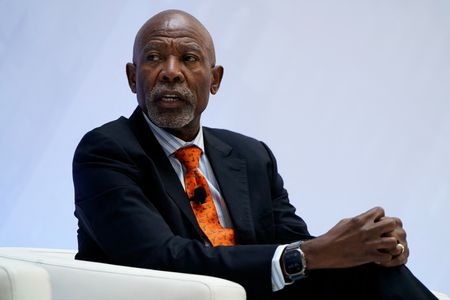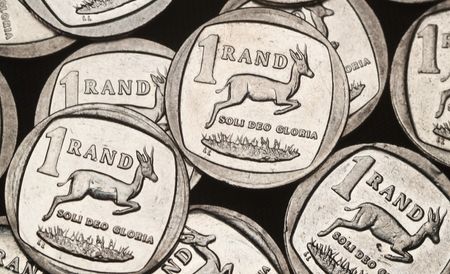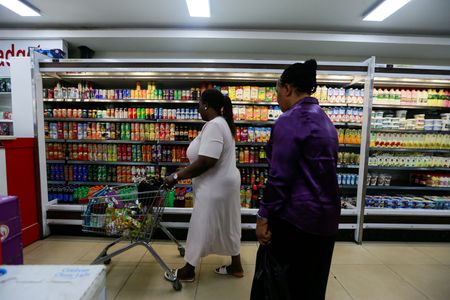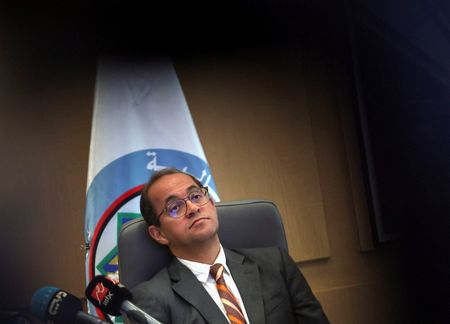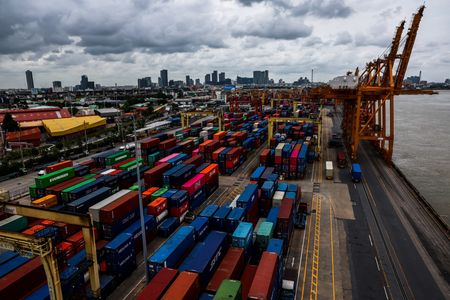(Corrects to fix day of the week to Wednesday in first paragraph, not Tuesday)
By Olivia Kumwenda-Mtambo and Colleen Goko
DURBAN (Reuters) – South African Reserve Bank Governor Lesetja Kganyago said on Wednesday that an “African agenda” including climate change and cross-border payment systems was still due to be discussed by G20 finance chiefs amid fears that tariffs would overshadow the gathering.
U.S. Treasury Secretary Scott Bessent skipped the gathering in Durban, marking his second consecutive absence from G20 finance meetings and raising questions about its ability to tackle pressing global challenges.
President Cyril Ramaphosa has sought to leverage Africa’s first G20 presidency to promote the African agenda, which also included topics such as the high cost of capital.
“The African issues have been elevated, all of us are talking about those,” Kganyago told Reuters as discussions were ongoing between deputies and other officials, before the two-day meeting gets officially under way on Thursday.
Kganyago emphasized the push for a coordinated African payments system to facilitate trade across the continent, a move that could face scrutiny from U.S. President Donald Trump.
Trump has threatened tariffs on BRICS nations for promoting “anti-American” policies, including advocating for payments in local currencies instead of relying on the dollar system.
“As African central banks, we have decided that we are going to enable the movement of payments across borders,” Kganyago said. “We are doing it not to bypass anybody, we are doing it because it will facilitate trade on our continent.”
The G20, initially formed to address global economic crises, has evolved into a key platform for policy coordination. However, Trump’s baseline 10% tariff on all U.S. imports, along with punitive rates targeting specific countries and products, has created significant policy uncertainty.
And while delegates said tariffs were the biggest theme affecting the global economy, Kganyago said G20 members would not develop a coordinated response to the threats.
He instead highlighted the importance of individual countries tailoring their strategies to suit their economies, like during the COVID pandemic.
Michael Kaplan, acting undersecretary for international affairs, will represent the department at the meeting.
(Reporting by Olivia Kumwenda-Mtambo and Colleen Goko; Writing by Kopano Gumbi; Editing by Alison Williams)

